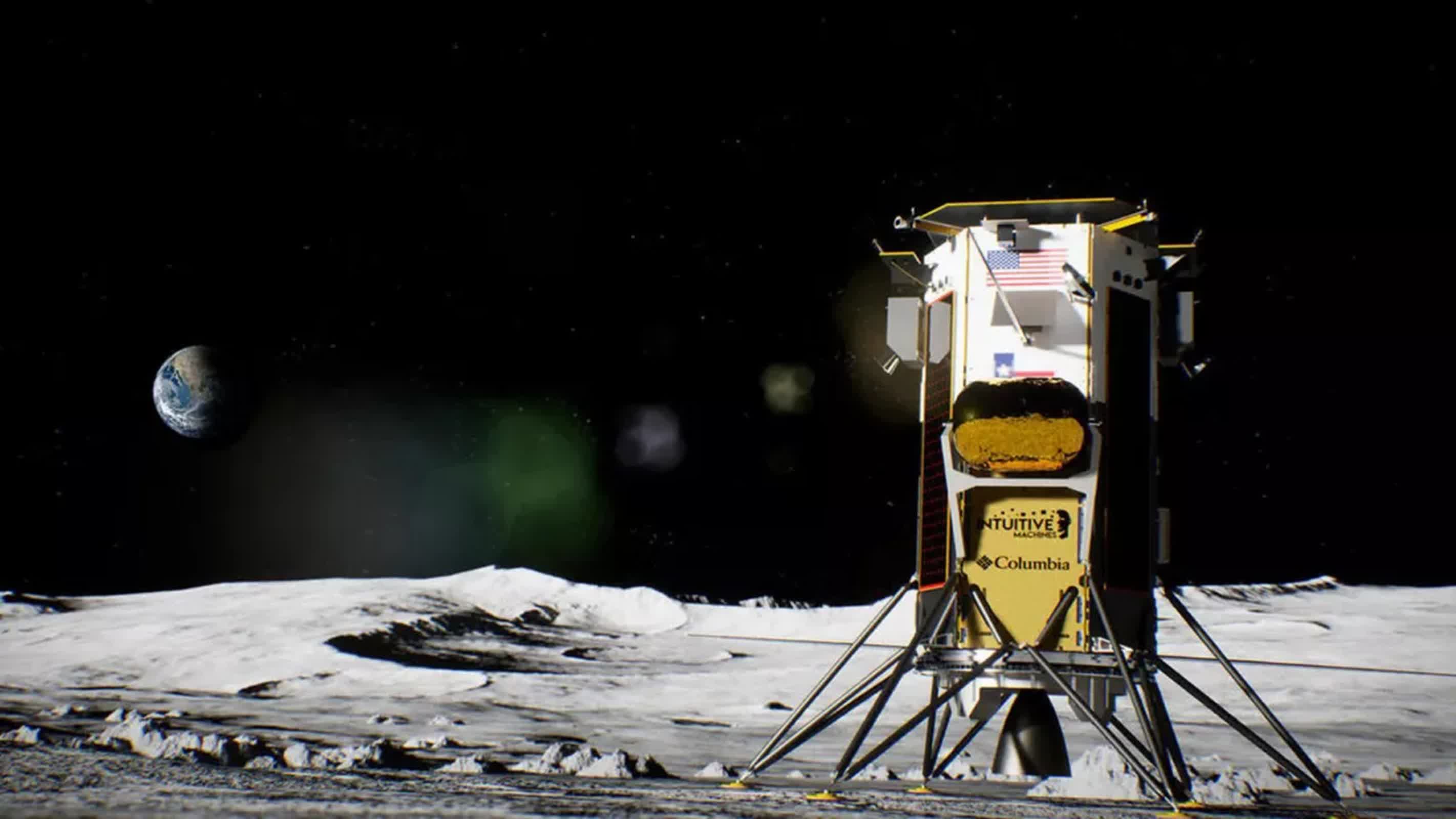Why it matters: The Odysseus' payloads included a number of scientific and commercial inventions but the lunar library could wind up being the most significant. Containing a huge array of books, documents and digital recordings, it is a guarantee that civilization on Earth will never be lost.

When Odysseus touched down near the lunar south pole at around 6:23 p.m. ET four days ago, tensions were running high. During the final descent, lasers meant to determine horizontal velocity and altitude stopped working, forcing ground controllers to switch to an untested NASA Doppler LIDAR landing system that was originally meant to be an in-flight technology demonstration. Furthermore, the US lunar mission, dubbed "IM-1," and led by Houston-based Intuitive Machines followed a failed attempt last month, when a private company called Astrobotic unsuccessfully attempted to land the Peregrine lander on the lunar surface. Investigations revealed that the mission failed due to a fuel leak.
But the Odysseus landed safely, making it the first American non-government lander to successfully touch down on the moon, not to mention the first US spacecraft to land on the lunar surface in more than 50 years.
Nowhere was the relief more palpable than with the Arch Mission Foundation, which had included in the spacecraft's payload a lunar library that carries nothing less than "a backup of human knowledge that will now endure untouched on the Moon for eternity," according to co-founder Nova Spivack. It was the third time the Arch Mission Foundation had tried to get this payload to the moon. The library was on Israel's Beresheet lander that crashed on the Moon in 2019 and the Astrobotic mission that splashed down into the South Pacific.

Etched onto thin sheets of nickel, Spivack says the lunar library is practically indestructible and can withstand the harsh conditions of space. Some of the contents of its 30 million pages include:
- Wikipedia, containing over six million articles.
- Portions of Project Gutenberg's library of over 70,000 free eBooks.
- The Long Now Foundation's Rosetta Project archive of over 7,000 human languages and The Panlex datasets.
- Selections from the Internet Archive's collections of books and documents and data sets.
- The SETI Institute's Earthling Project, featuring a musical compilation of 10,000 vocal submissions.
- The Arch Lunar Art Archive containing a collection of works from global contemporary and digital artists in 2022, recorded as NFTs.
- The secrets to David Copperfield's greatest illusions, including how he will make the Moon disappear in the near future.
- The Arch Mission Primer, which teaches a million concepts with images and words in five languages.
- The Arch Mission Private Library, which contains millions of pages as well as books, documents and articles.
All told, the Odysseus was loaded with a total of 12 payloads from NASA and commercial companies. They ranged from NASA's Radio Observations of the Lunar Surface Photoelectron Sheath, which uses a low-frequency radio receiver system to, among other things, measure the electron plasma environment on the lunar surface, to thermal reflective material developed by Columbia Sportswear called Omni-Heat Infinity that it uses in its jackets. Intuitive Machines engineers used the technology on the closeout panel to protect the cryogenic propulsion tank.
https://www.techspot.com/news/102019-odysseus-lunar-lander-payload-included-30-million-page.html